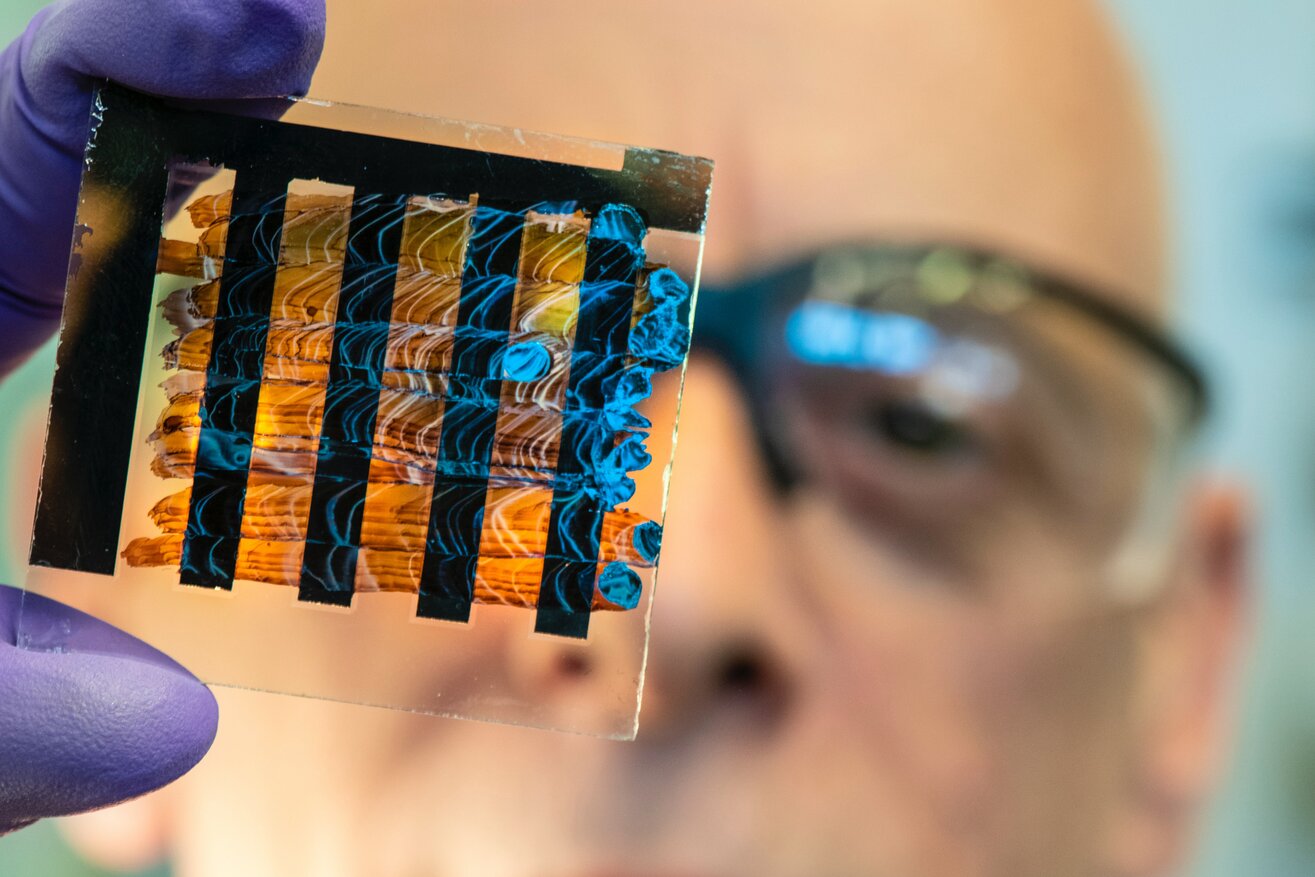Higher education and the Covid-19 crisis

Sarah Shaw and Rebecca Brandwood speak to a selection of Vice Chancellors/relevant colleagues at several universities with medical schools, from across the UK, to discuss their institution’s reaction and response to the Covid-19 pandemic and their thoughts on the ‘new normal’ moving forward
The UK higher education sector has played a critical role in the global response to the pandemic. There is an inherent link between healthcare and medical education which has enhanced and cemented the cross-collaboration so vital in these unprecedented times. Universities spanning England, Wales, Northern Ireland and Scotland have all played their part – and continue to do so in the fight to save lives.
Here are some key themes identified in our discussions and just a few examples of our universities’ response:
Medical Schools
Our nation’s medical schools have been on the frontline of this emergency, supporting the NHS and our social care services. As Professor Ed Byrne of King’s College London advised, “there has been a bit of WW2 strategic repositioning”. He explained that across his institution academics, where able, have “quickly repositioned their research and efforts to take on their share of the heavy lifting”.
In the same vein, Professor Susan Lea of the University of Hull said this is “the core of what universities do”. She agreed the incredible work during the pandemic has been mobilised quickly but rationalised it by advising academic institutions are the nation’s powerhouses of knowledge and play a fundamental role in problem solving in any given situation: “We develop and innovate, we engage in knowledge exchange with partners through research and we train students for the workforce - it’s just what we do”.
The schools have provided an injection of medical staff – from clinical academics to early final year medical graduates. The newly qualified doctors, nurses, and paramedics have been fast-tracked for early course completion and graduation ceremonies were held online at all universities we spoke to, to expediate this. It has been truly remarkable the number of newly qualified professionals who have elected to accelerate their path into the NHS in the face of this challenge.
Universities have been working tirelessly to drive the Covid-19 research efforts. From development of antibody testing through to international vaccination trials, they have drawn upon their expertise and resources to react quickly to the global healthcare emergency. In conversation with Professor David Adams, Pro-Vice-Chancellor and Head of College of Medical and Dental Sciences at the University of Birmingham, we discussed their extensive Covid-19 research function and how he “coordinated the clinical academics to pull ideas together and to put them into action”. The university has combined efforts with other academic institutions and private sector organisations around the world to develop imperative research programmes.
Multidisciplinary research
Beyond the medical school, each university has also responded with cross-institutional efforts. Professor Adams expanded on the medical science work to discuss the multidisciplinarity of the response and the utilisation of research prowess from academics in all fields of study. He referred to examples such as the College of Social Sciences’ research on the impact of Covid-19 on communities in towns and cities, and the work of the Business School studying the pandemic’s economic disruption.
Partnerships
Numerous innovation projects have developed out of this pandemic with universities looking to their strategic partners to accelerate response and output. There has been a particular effort across universities to supply the much-needed PPE for key health and social care workers. Professor Mark Smith of the University of Southampton highlighted the collaboration between the university’s medical staff, the engineering department and industry partners to devise a new form of reusable PPE with a self-circulating air supply. In a combined local effort with University of Salford and Manchester Metropolitan University, University of Manchester has utilised 3D printing capabilities to design and make headbands for protective facemasks worn by frontline NHS medical staff in hospitals. And, in our conversation with Professor Judith Petts, she discussed University of Plymouth’s PPE manufacturing with industry at the co-owned science park. For her, these alliances were already solidified prior to the virus but “this gave us a confidence to unite forces” and she thinks the “pride and joint-success story will connect us further”.
From a different perspective of partnership, we covered Professor Petts’ position as an Education sector member of the Board of the Heart of the South West LEP and her view of the role universities will play in local economic recovery, particularly building on their contribution to research and development in high performing sectors. Professor David Maguire, interim VC of University of Dundee, echoed this in his recent discussions with Dundee Council and their launch of an initiative to encourage people on furlough to volunteer for local organisations. The role of the university in its regional economy can never be more important than it is now.
Other initiatives, and to plan for the future, have included new and relevant online programmes. Professor Ian Greer of Queen’s University Belfast commented on the importance of university spin-outs to the economy and job market of the region. In response to the increasing demand for IT skills, he told us about the university’s new offering of compressed online PgCert courses in technology sector expertise - the first, launched two weeks ago in software development, has already had an excellent response and other such courses will follow shortly. These programmes are designed to train a new generation of people in technology and provide the necessary skills for a student to secure a job in a new sector in only four or five months.
Continued education delivery
Whilst this phenomenal Covid-19 response activity has taken place, teaching has continued for students. Universities worked quickly to comply with the lockdown measures announced at the end of March, switching their normal schedule of face to face classes, lectures and labs to online learning. For many, it was a fairly seamless transition, requiring less than a week to make changes to an already established IT infrastructure. Professor Byrne informed us of KCL’s advantageous position from their long-running digital transformation programme. The university partnered with US institutions five years ago to build and deliver a series of high-quality online courses. From this investment, they have “built a strong team of online structural designers” who are now working on a more robust online delivery platform for courses across the university.
Those we spoke to all mentioned their current scenario planning activities. There are three distinct options for delivery of education at the start of next academic year: business as usual, complete online delivery, or a more blended approach. Claire Brown, Director of Communications and Marketing at the University of Manchester confirmed the university’s strong stance to open the city’s campus for the new academic year. Large lecture theatres will not be used for sizable classes but will be used for maintaining social distancing with smaller cohorts of students. Professor Adams also advised of a similar provisional plan for University of Birmingham, with a rotational schedule of classes to allow students some time on campus alongside online classes. Universities must embrace technology and be creative in order to ensure a high-quality education through online delivery.
Even with a transition to online education delivery, there needs to be people on the ground. Universities, such as specialist health sciences institution St George’s University London, have an array of facilities which need to be overseen. From a health and safety perspective, Principal Professor Jenny Higham said: “We have a lot of resources requiring high levels of risk assessment and maintenance such as radioactive substances, specimens, and chemicals.” She maintains the transition was “not as easy as shutting the door and flicking off a switch”.
Professor Lea also pointed out the increased need to consider potential student inequalities at this time. Widening participation is an important agenda for the sector and the circumstances we are in with online delivery may see great impact on students who don’t have the means and resources to study effectively from home. Professor Lea told us: “Universities need to be thinking about how they can support all of their students in this challenging time. There will be students struggling with internet connectivity and others won’t have a quiet space to study, for example. We should be asking our community how we can provide extra support with the resources we have.”
Communication and Leadership
University of Manchester has set up an expert media group to provide commentary and expertise to journalists looking to cover Covid-19 stories. Mike Addelman, Media Relations Officer, spoke to us about the importance of academics and scientists being at the forefront of public discourse around the virus to provide accurate and honest insight into the latest pandemic news – thereby lessening the impact of all the fake news on the topic.
Professor Trevor McMillan of Keele University spoke about the importance of leadership and timely communication. The university has a group of five senior advisory leaders who come together ‘virtually’ for daily meetings to discuss their response to the crisis. He told us: “A team effort is absolutely critical right now. We are working on getting the communications right which requires a collaborative effort of different perspectives. There is a mutual respect which has allowed us to challenge each other on decision-making and ensure we are taking the right steps for the institution”.
Professor David Maguire also mentioned the role of the Vice-Chancellor in communications. In his experience so far, the “pace of change has been both exciting and unnerving”. To respond to this quick decision-making, he said, “communication has to be frequent, clear and transparent, much more so than before, getting the tone right is imperative. It has to be precise and direct – tell people what to do but also show extreme empathy and concern during this time”. University of Dundee is focusing on the positives and the incredible work of all involved in the response, from researchers to alumni. For Professor Maguire: “we need to maintain the sense of community and keep morale high. Our culture is so important and whilst we are spaced so disparately, we need to support connectivity across the university”.
We can draw from this that good communication is paramount and being virtual does not prevent good and swift decision making – it can even expedite it.
Mental health and wellbeing
Universities are having to consider more than converting their teaching online. Mental health and student/staff welfare resources have needed to be reconfigured. There has been a particular focus on the services being provided to students still in halls of residence - Professor Higham mentioned St George’s is providing a “bespoke service for those still in student accommodation”. Although most students have been advised to go home at this time, others may not have moved out of their university accommodation for various reasons, whether that is the international travel restrictions or care needs and health conditions.
Our contributors all spoke about putting the spotlight on staff welfare at this time. This was highlighted by Professor McMillan who said, “strong and effective two-way communication is key as our staff are all working in new environments with new personal situations’’. He went on to say that, “we need a general sense of direction which is flexible enough to support the individual circumstances of everyone, such as staff and students, self-isolating or caring for a vulnerable family member’’.
Our conversation with Professor Mark Smith of University of Southampton covered how work pattern change has impacted staff morale. He said: “I never realised before how important the act of going to work is for our social and mental well-being. Conducting virtual meetings and simulating a digital working environment just doesn’t provide the same experience”. Professor Smith went on to say the university will take this as the “springboard for a more radical workplace” – extrapolating the best elements such as the time efficiency and environmental benefit of working from home and the ease and productivity of attending virtual meetings.
Student numbers
Student numbers in the next academic year was a hot topic in our conversations. At this point, late into the university application process, we are still in a void of uncertainty. The challenge of conversion from application to acceptance has been difficult, and now translating this into matriculation is even more of an unknown. The over-arching consensus is that international student numbers will see a short-term downturn due to health concerns and logistical complications around quarantine and visas.
In terms of domestic and EU students, there seems to be some optimism in the sector that significant deferral levels will not transpire - despite the high probability of universities commencing the academic year with courses delivered entirely online. The PG story may be the silver lining; Professor Petts said Plymouth has seen a distinct uptake in post-graduate applications since the pandemic, which she has attributed to students seeking the security of higher education over entering a possibly non-existent job market.
Another positive may be a longer-term change in perception of a medical/health career as a result of the huge swell of support for those on the frontline during Covid-19. St George’s is a university at the pandemic epicentre and is vital to educating the future health and social care workforce. Their demographic is high numbers of mature students and students from the local community. As Professor Higham mooted: “We need to translate this interest in the NHS and working in healthcare/health science into filling our courses for next year”.
The future of the sector
The Covid-19 pandemic is changing the higher education sector immeasurably. For one, it is accelerating the move to digital. Professor Maguire pointed out: “There is a digital wave we can ride - we won’t go back to life as it was pre-Covid". He went on to say, “we know what we can do, what we can’t do and what is better.”
For Claire Brown, the collaborative approach to this crisis has been impressive and she sees this as a key point of progression. Manchester University is a large institution, with over 40,000 students and over 12,000 members of staff and having one over-riding concern – the Covid-19 pandemic - has united the community more than ever before, as well as enhanced and developed new external partnerships.
Looking forward, Professor Byrne optimistically said, “we will have the best of the old and the best of the new”. His recently published book, ‘The University Challenge’, covered some of the challenges being faced today but now, in the face of the pandemic, he sees change moving more rapidly than he had previously anticipated. In our conversation, he focused on the argument for a more integrated system of education in the UK and how there is “room for rationalisation of the sector in a number of areas”. For him, universities need to have “a clarity of focus and of mission to meet market need”, and the Covid-19 pandemic is markedly pushing this change forward.
We would like to say a big thank you to everyone we spoke to for their precious time and their hugely insightful thoughts on their institution’s response to the Covid-19 crisis. The sector has pivoted and played its part in dramatic and fantastic fashion, providing service, research, product and sheer passion and inspiration. This article, quite simply, could have been five times longer if we included all the examples of the wonderful work being done just by the institutions who collaborated with us to put this together!
On Thursday 28th May at 8pm we clapped for UK HE. Thank you so much.
For more information please contact Sarah Shaw or Rebecca Brandwood.







Comments
Jenny Rees at 29/05/2020 11:51 said:
Add your comment